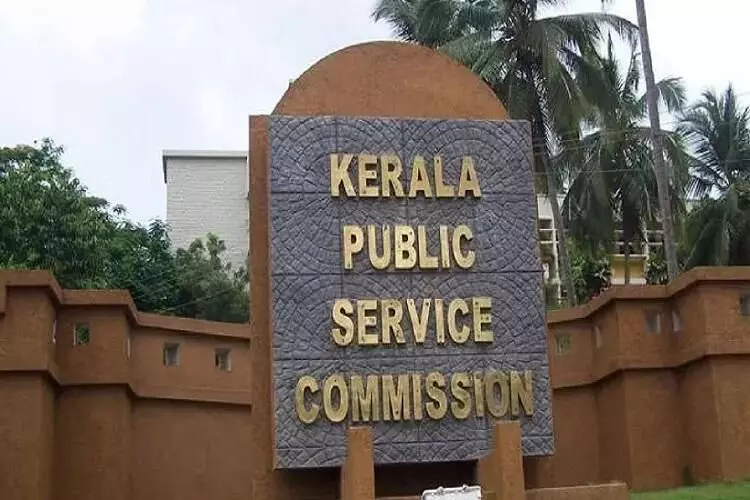
Kerala PSC: an agency in disuse
text_fieldsPublic Service Commissions are a constitutional mechanism for recruitment to government services. By common notion, candidates who are selected for such jobs qualify through the PSC's objective process of a scientific, transparent process and competitive examinations. For this very reason, it is a vital public interest that only through the PSC shall recruitment be made to any job that the state pays for. Hence the merit in the argument that appointments to the various posts in aided educational institutions also should be made through the PSC. And there is also the long-standing demand that recruitment to the different government-owned of controlled boards and corporations should also be made through the same body. But the sad fact is that neither the Left Democratic Front (LD)F nor the United Democratic Front (UDF) of Kerala, the two alternating alliances that have been ruling the state for long, is interested in implementing the idea. Nor has the demand for recruitments in universities also to be made via the PSC been fulfilled so far. It was in 2015, towards the end of the previous UDF government, that a decision was taken for transferring the non-teaching appointments to the universities to the PSC.
The reason to put this in context is the decision of the Calicut University syndicate in December 2020 to make provisional employees permanent which Kerala High Court has now stayed. Temporary appointments were made mostly through favouritism and nepotism including for example, the son of an area secretary of the ruling party, the CPM. The December decision of the University to appoint candidates to various posts, including to the post of computer programmer, includes those have been working for long terms under temporary employment. The Syndicate's decision came after over-ruling the note of disagreement put by officials concerned. The current High Court stay comes in response to petitions by certain young job-seekers who have been hunting for work for long. The court order has to be seen as a setback for the recruitment 'fiesta' which makes a mockery of the public recruitment agency, and also the mandatory reservation principles to be followed for government recruitments, since the appointments were all made at different stages with scarce regard for, let alone conformity to any general norms. At the same time, in all likelihood, the University will explore legal means of overcoming the court's stay. And later when the case comes up for the court's hearing, it is unlikely that the government will take a position against the university's stance. That's how in most of such instances, these mass appointment fiestas end up with the endorsement of courts.
There is no need to see the PSC as a glorious agency. We had seen how a whole gang of culprits in a case under stabbing charge from the pro-CPM student outfit, Students Federation of India (SFI) of University College, Thiruvananthapuram, found top places in the selection list for the post of police constable. When this scam was uncovered, the PSC swiftly scraped through by cancelling that list. The only accused in that case were those complicit in the stabbing. If a few young criminals could find top places in a PSC rank list, that hints at the role of a huge and influential machinery at work behind it. But unfortunately, the PSC did not bother to get into its inside story or for an enquiry into it. In another instance, the issues that arose related to the recruitment process for the much sought-after cadre of the new Kerala Administrative Service (KAS), and the litigations about the process, also caused damage to the credibility of the PSC. Despite al these shortcomings, as the largest recruitment agency PSC bears a stamp of authenticity in the population thanks to its key role. And hence the merit of the oft-raised demand that recruitments should be transferred to PSC.
In the case of the universities, only non-teaching posts come under PSC's jurisdiction, but the fact is that even that process is being overturned. The government has so far not been prepared to let PSC handle teaching appointments. Currently selection of teachers is made by a panel consisting of Vice Chancellor (VC), Syndicate nominees, a subject expert nominated by the VC, a government nominee and the head of department. It is anybody's guess how members of a panel, who are nominated based on political affiliations, will do decision-making in such a process. And that becomes just another device to plant partymen and their favourites in universities. No wonder then that universities have become grazing ground for teachers who often do not have even the quality level of unaided colleges.
This is a time when Kerala's youth should strongly raise two demands above party affiliations: appointments to posts which derive government pay and allowance, should be totally handed over to the PSC, and steps should be taken to ensure the credibility and integrity of the PSC. However, since both fronts of the state will be interested in appointing candidates of their choice, it will take considerable people pressure to implement these demands.






















